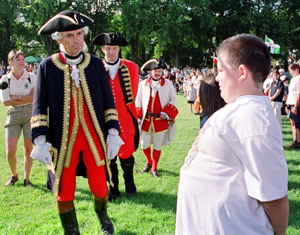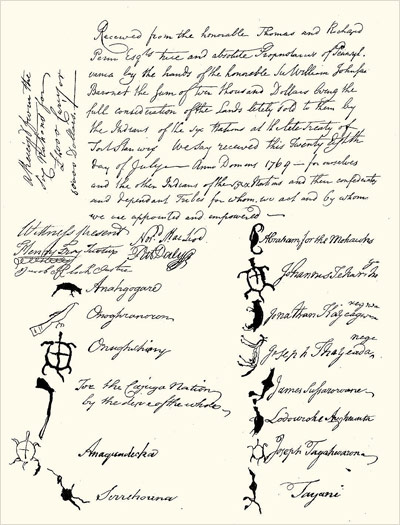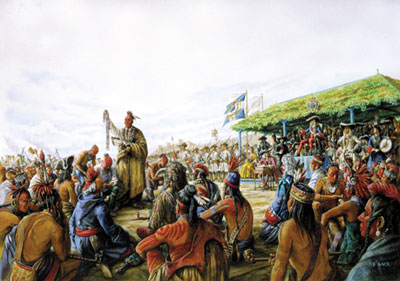Plains of Abraham Aftermath: First Nations Healing Ceremony or Eurocentric debate?
Now that the plan to re-enact the Plains of Abraham colonial war has been canned, a debate is brewing about what should replace the event that was designed to mark the 250 year anniversary. While the National Battlefield Commission is blaming “separatist threats of violence” for the cancellation, it is becoming increasingly clear that there was very little appetite in the first place for the pro-war event, as reported earlier . Ill-conceived from Day One and bound to stir up linguistic tensions and anger in Quebec, the proposed re-enactment could only be described as difficult to stomach.

In an effort to steer the debate away from the Eurocentric “French versus English” hegemonic discourse, members of Quebec’s anglophone minority called for its cancellation and wrote letters to newspapers across the country, such this one (by yours truly) that appeared in the Toronto Star:
“As a member of Quebec’s anglophone minority, I was relieved to hear that the federal government is seriously considering cancelling the Plains of Abraham re-enactment. While many pundits are declaring this to be an English versus French conflict, I can assure you that many anglophones living in Quebec do not support re-enacting the Plains of Abraham battle.
Clearly, re-enacting military dominance over a historically oppressed group is both morally reprehensible and likely to cause anger, division, resentment and possibly violence. Why would Canada support, let alone fund and organize, such an offensive (and pro-war) activity? It is time for Prime Minister Stephen Harper to listen to all Quebecers, including anglophones, and cancel the re-enactment without further delay.
Donovan King, Montreal”
Other prominent Quebec anglos have also joined the debate, such as McGill university military historian Desmond Morton, who described the attempted re-enactment as “folly“.
While the dust is only now starting to settle, skirmishes are still taking place over whether the federally-owned Plains of Abraham should be transferred to Quebec and what should be done to replace the cancelled re-enactment.
The first replacement proposal came on February 18 from the Huron-Wendat First Nation near Quebec City, whose grand chief Konrad Sioui proposed a healing ceremony on the Plains of Abraham that would mark a “treaty of peace and friendship” among all participating nations who would “bury the hatchets” of past grievances. The hatchets would be buried on the Plains and a white pine would be planted over them in a spot where an underground river flows that would nurture the tree. “All nations wishing to join the alliance could benefit from the healing shadow of this protective pine,” according to grand chief Sioui, who modelled the ceremony on the 1701 Grande Paix de Montréal.

Sioui wishes to preside over the ceremony, smoke the peace pipe, and formalize an alliance “among all the parties wishing to join: First Nations, French, English, Scottish, Irish, new immigrants, sovereignists, federalists and so on…It’s our contribution, our way of doing things.” Sioui said the ceremony would be a “beautiful way” to put a stop to “European people who bring European wars to our territory.”

It appears that Grand Chief Sioui’s proposal may have fallen on deaf ears in Quebec, because several days later the predominantly-francophone Parti Québécois announced that it might hold its own commemoration, and later decided that a debate about the meaning of the Plains would be the best replacement for the cancelled battle re-enactment. Party leader Pauline Marois said other pro-sovereignty groups could also participate in the PQ debate, such as the Mouvement national des Québécoises et Québécois, the Société St-Jean-Baptiste and the Bloc Québécois. One dissenting voice at the weekend meeting was John Sewell, an anglophone delegate who disagreed with the motion and suggested that the PQ should take up the proposed Huron-Wendat ceremony. Sewell claimed a PQ-organized commemoration sends the following message: “We’re going to take control of the event and we’re going to make a political statement out of it.”
Which proposed commemoration is more appropriate? Should both be done? What issues are at play here?
Firstly, the cancellation of the Plains re-enactment signifies a cultural evolution. Instead of blindly following prescribed Eurocentric colonial commemorations and re-enactments, society has turned the lens onto the very nature of these massive public spectacles. Many of these “celebrations” actually discriminate against historically oppressed groups such as the First Nations and francophones, and postcolonial resistance to them is becoming more and more prevalent. One need only look as far back as 2006 when the “400th anniversary of theatre in Canada” was cancelled due to the fact the first European play written in Canada, Marc Lescarbot’s Theatre of Neptune in New France, is a redface show. Going further back to 1992, the 500 year anniversary of Columbus witnessed postcolonial cultural resistance. Likewise, resistance is mounting to the Vancouver Olympics in 2010, which are situated on stolen land. All of these controversies speak to a cultural evolution whereby the society demands the end of “historical” Eurocentric performances, celebrations, commemorations, and re-enactments that degrade others.
Secondly, the battle cancellation signifies an exciting opportunity for re-evaluation. What should replace the offensive original? Ideally, from a cultural theory point of view, the new creation emerging from the tatters of the cancelled Eurocentric project should critique the oppressive past while striving for a better, more just future. The cancelled Theatre of Neptune in New France was replaced with Sinking Neptune, a project that boldly deconstructed the original play and challenged audiences to look at the historical roots of racism in Canada and to re-evaluate Eurocentricity in the arts and media.
From these perspectives, it seems clear that the Huron-Wendat proposal is by far superior to that of the PQ. Firstly, it is inclusive, and invites all nations to participate, whereas the PQ’s debate is only open to francophone groups. Secondly it focuses on peace and healing through solemn ceremony, whereas the PQ debate, because it engages only francophones, is unlikely to lead to true resolution or healing. Thirdly, the First Nations proposal critiques Eurocentricity and colonization in present-day Quebec, whereas the PQ proposal concerns only francophone interests. Finally, if successful, the outcome of the Huron-Wendat ceremony will include buried grievances, the promotion of social harmony, and the showing of respect by listening to and learning from the First Nations.
Hopefully both the ceremony and the debate can go ahead, but it would be nice if the PQ opened up a bit of space for non-francophones to express their views as well.

March 11th, 2009 at 8:05 am
[…] only has to look back a few weeks to the recent debate over the proposed re-enactment of the battle of the plains of Abraham to see two dominant […]